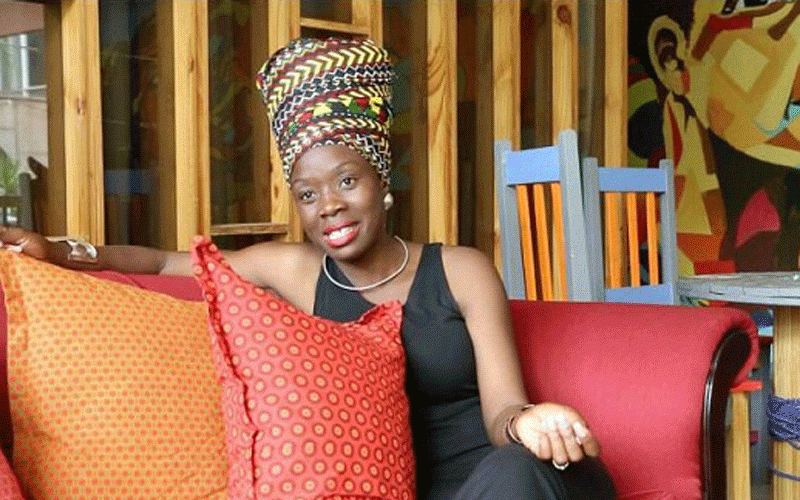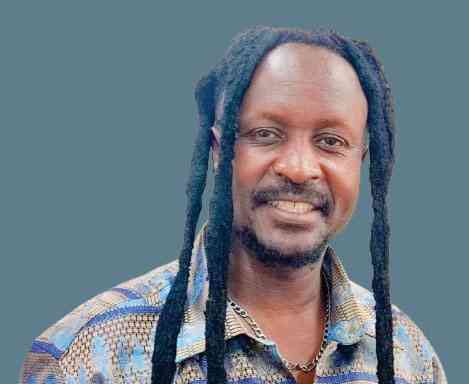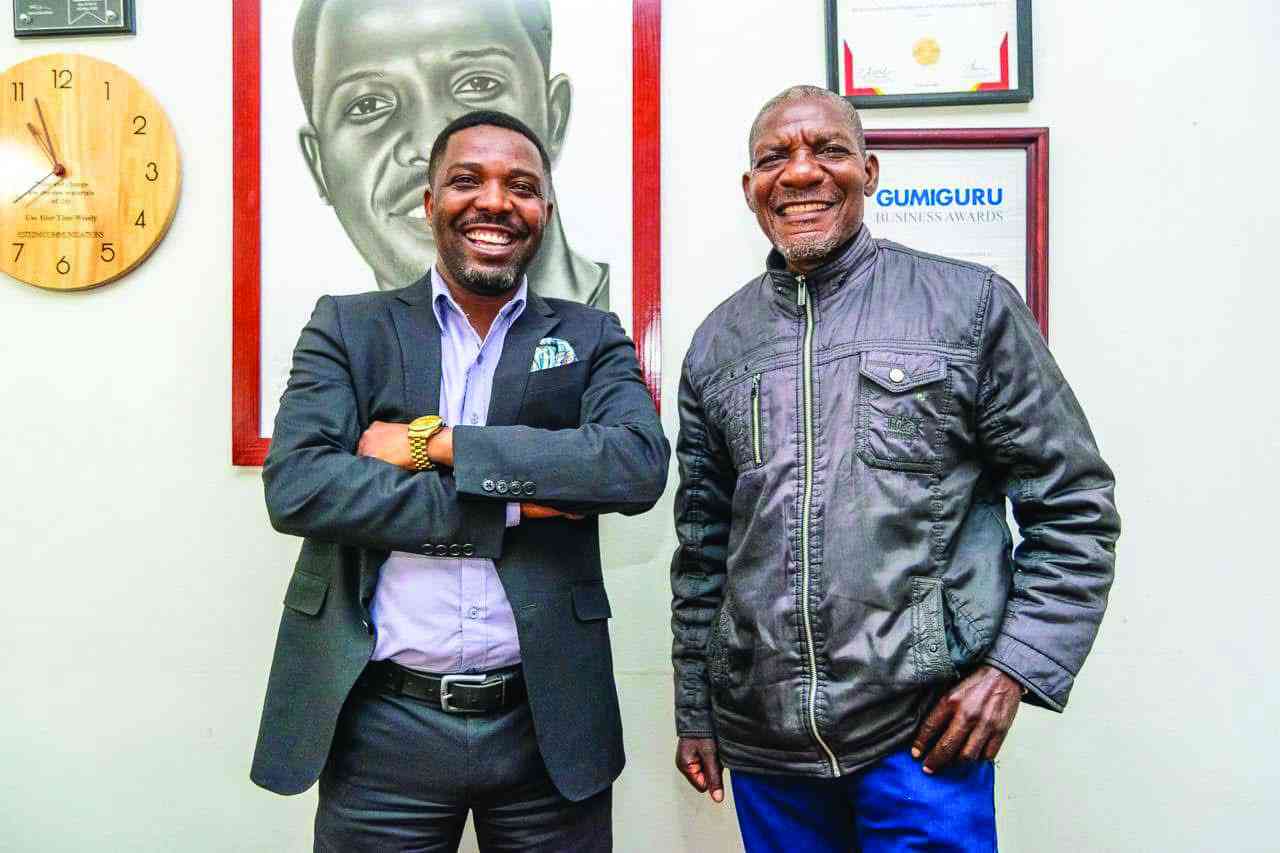
In 2015, I was one of the judges during Barney Mpariwa’s Starbrite TV show. One of the winners in the singing category was Novuyo Dube from Bulawayo whom I saw mingling with inmates from Chikurubi Maximum Prison. She had recognised one of them and was asking if he had been released from prison now. “No!” he said. “ We are all prisoners here but have come to join Starbrite”. When I heard this conversation I wondered how prisoners from Chikurubi had been allowed to take part in the contest. I asked one of the contestants two questions: How do you get time to rehearse together while in prison? Are they not afraid that by letting you join Starbrite, you might run away and escape for good?
The answer one of them gave me was amazing: “We are trusted prisoners and our period of incarceration is about to end. So there is no need to run away. Music is kind of one facet of me trying to open my heart and really appreciate people for who they are,” he added. “And I really do see that a lot in the other incarcerated guys. We are allowed an hour on each day to gather as trusted prisoners who are also musicians and we end up using it as a platform to come together instead of being divisive.”
That got me thinking. We could set up musical bands in prisons. According to a report released by Zimstat last year, young adults aged between 20 and 24 accounted for the majority of prisoners incarcerated in Zimbabwe during the fourth quarter of 2023 with reports that 97% of inmates are male. The majority of new prisoners that were admitted during the year had completed lower secondary or some secondary level of education. Many young people in contact with the justice system come from backgrounds of extreme poverty, parental abuse or neglect, parental incarceration and disrupted education. Many of them have been convicted of crimes such as drug peddling, rape and robbery. Unfortunately, most of their victims are their own relatives and such family members are bitter and do not want to associate with them. Once such criminals are in prison, family members do not even bother to pay them a visit. This has far-reaching implications. If one spends two years in prison without being visited by a relative or someone close to them to give them hope and to reduce the trauma they are facing, they will be devastated psychologically. Some may even want to commit suicide. Prison is supposed to act as a correction service for the young offender. As one way of moving forward with this concept music programmes given to prisoners should act as a consolation to all those incarcerated and traumatised inmates.
In 2013, musician and Afro-Jazz artist, Dudu Manhenga, was convicted for negligent driving which caused the death of a motorcyclist, Graham Martin Millward in 2010. She opened up her prison experiences to Capitalk’s Sokostina where she spoke about her trauma while in prison. She said that her first step to recovering was to accept what had happened and to prepare oneself for the worst. Prison changed her perception of life completely; the freedom we take for granted while out of prison such as getting out of bed when one feels like it, eating breakfast of your choice when you feel like it and going wherever you want is crushed. In prison all those ‘privileges’ are gone. “Some companies I had worked with before going to prison completely abandoned me and refused to renew my contracts when I left prison. People should know that someone who has served a prison sentence has gone through so much trauma and deserves a second chance.” Dudu could have used her music skills to alleviate her own trauma as well as the trauma that other women in prison were also going through.
These complex traumas often manifest themselves as addictions to drugs or alcohol, mental health challenges, poor physical health and wellbeing, and conduct disorders.
How we can effectively respond to offending by these vulnerable young people remains a contentious topic.
“Tough on youth crime” approaches are notoriously ineffective as many of young people re-offend within a year of release and research suggests periods of detention increase the frequency and severity of offending.
Innovative solutions are urgently needed to reduce youth offending in ways that prioritise the best interests of the child. At the core of our everyday experience with music, we use it to relax, express ourselves, come to terms with our emotions, and generally improve our well-being. It has evolved into a tool for healing and self-expression, often dictating how we, as individuals, take steps to impact society.
- UK tour big breakthrough for Feli Nandi
- Amuli now full-time traditional healer
- Mhofela finally drops album
- Muchemwa, Dino Mudondo join forces
Keep Reading
Music can provide incarcerated youth with opportunities to redefine themselves from young offenders to young artistes with creative potential.
Music programmes such as guitar and songwriting workshops can alleviate the stressors of incarceration. Prison services could use the skills of artistes outside prison such as Filbert Marova, Alick Macheso, Dudu Manhenga, Pablo Nakappa, Daniel Ngwira, Clive Mono Mkundu and many others who have undergone lessons at the Zimbabwe College of Music or are trained musicians to teach prisoners. This will indeed alleviate their boredom while in prison and also correct their behaviour to a better one.
Musicians shared that these programmes were not only an escape but could also “change the atmosphere” from a very intense environment in which youth are often wary and tense to one where they can dream and play. Youth can participate to whatever extent they feel comfortable. This might involve writing rhymes, laying down beats, rapping, adjusting the microphone, holding a notebook for someone, providing feedback or ideas for others, or simply listening.
In this way, young people can develop trusting relationships and learn from each other as much as they do from their facilitators.
Musicians I have interviewed all agree that music programmes should not be used to reward young people for good behaviour, only to be taken away if they don’t comply. Framing music as a reward — rather than a right — has the potential to mitigate the transformative potentials of music programmes by subsuming them within broader carceral systems of discipline and control.
Music programmes should be an alternative, safe, creative space where everyone belongs.
Rather than an intervention to “fix” young people while they also navigate the stressors of detention, music might also be an effective early intervention strategy. By reducing our overreliance on punitive responses to youth offending — which are particularly unhelpful at meeting the trauma-related and developmental needs of youth, we can imagine how such programmes could change youth justice more broadly.
The question now is how we might make such programmes available for the young people who need them the most. As one musician who had recently been released from prison asked me during an interview, “How can music change the life of someone that isn’t given the opportunity?” “I was one of the lucky few to be provided with a tablet while in prison. On it, there are several Oliver Mtukudzi songs such as Nhamo Dzandimomotera and Nyarara Mwanawe. I started to cry and regretted why I did what I did to end up in prison. In a lot of ways, I’m a normal human being with all kinds of emotions and heartache and depression... just like anybody who’s not in prison,” he said. “And so I’m always trying to figure out a way to communicate that type of empathy, I guess, and get people on the outside to understand what it’s like to be a prisoner.”
If prison is indeed a correctional service where the protection of society from criminal elements through the incarceration and rehabilitation of convicted persons and others who are lawfully required to be detained, it is important to establish that as part of their integration back into society, the prisoners come out with useful skills. Music is an enjoyable phenomenon which plays a vital role in this integration in a country where employment of the youth is a big challenge.
Feedback: frezindi@gmail.com










